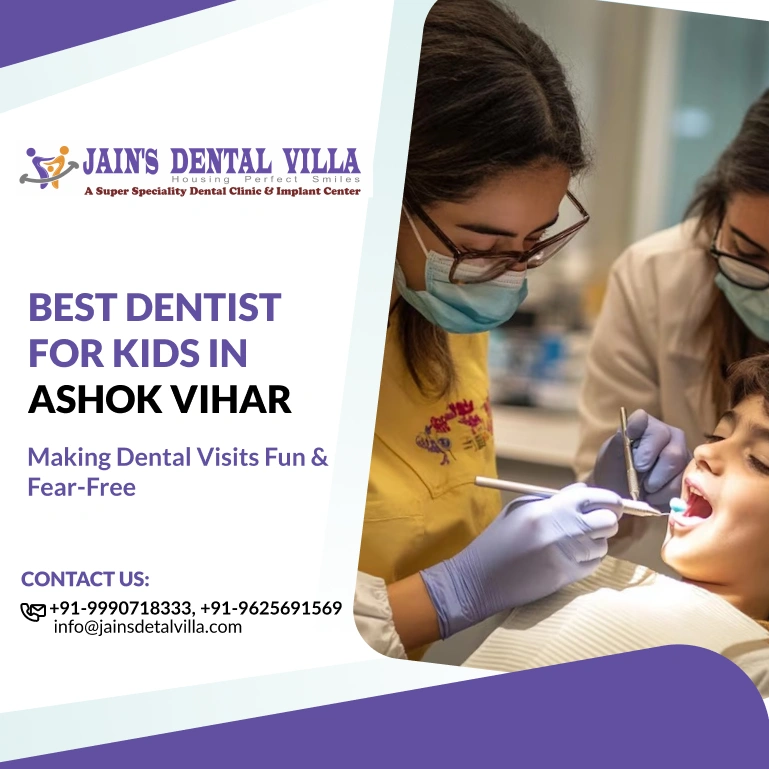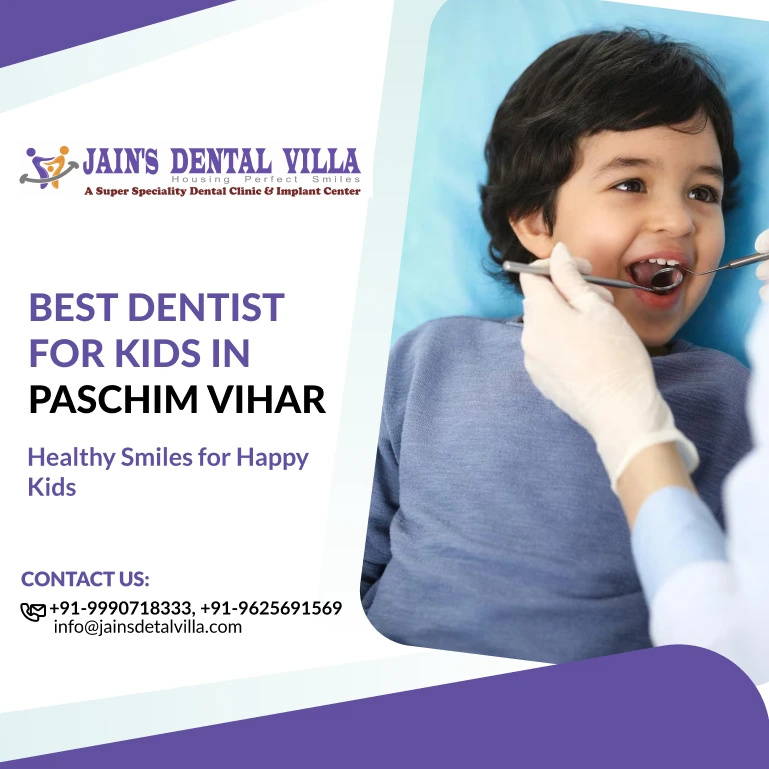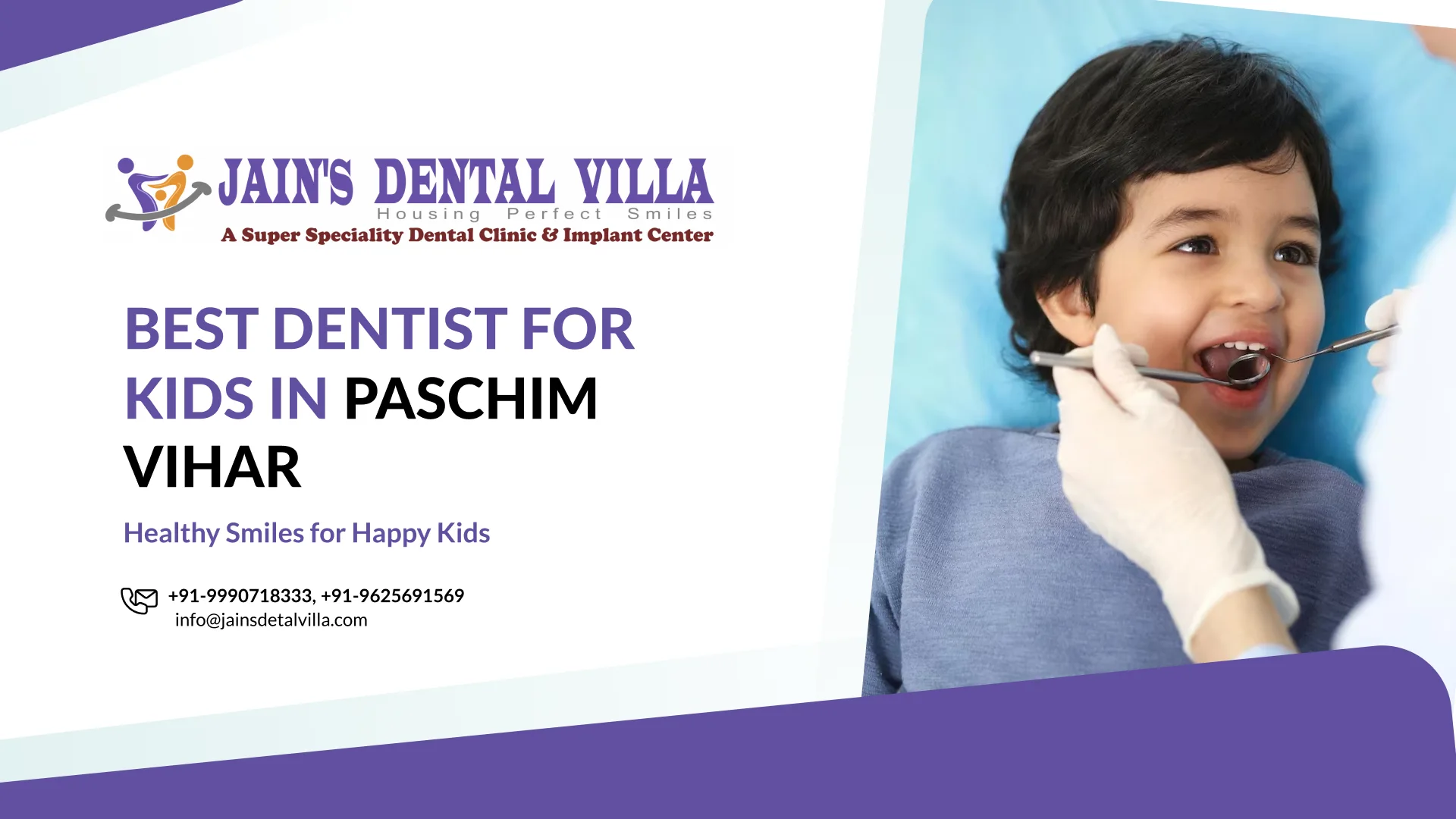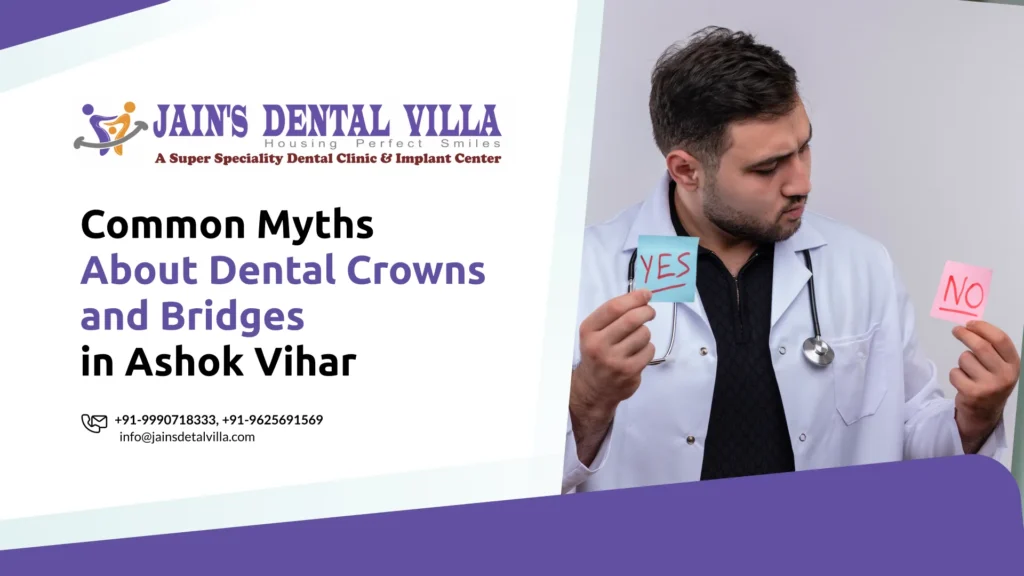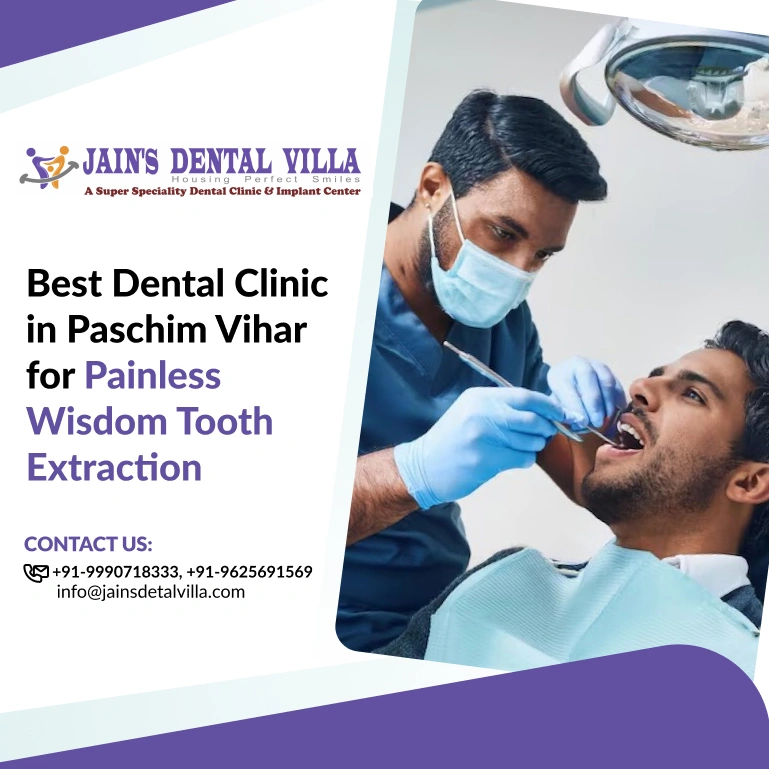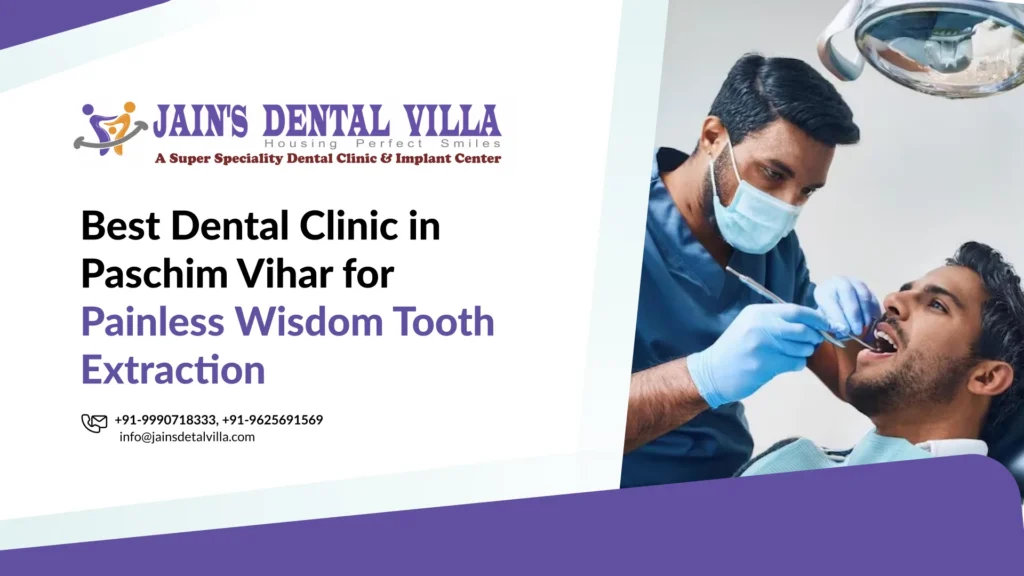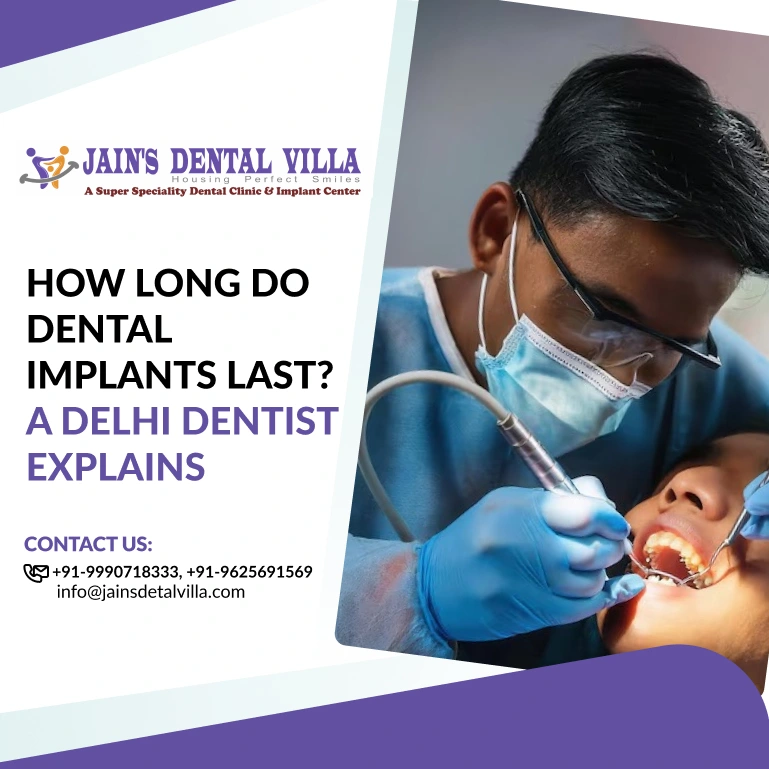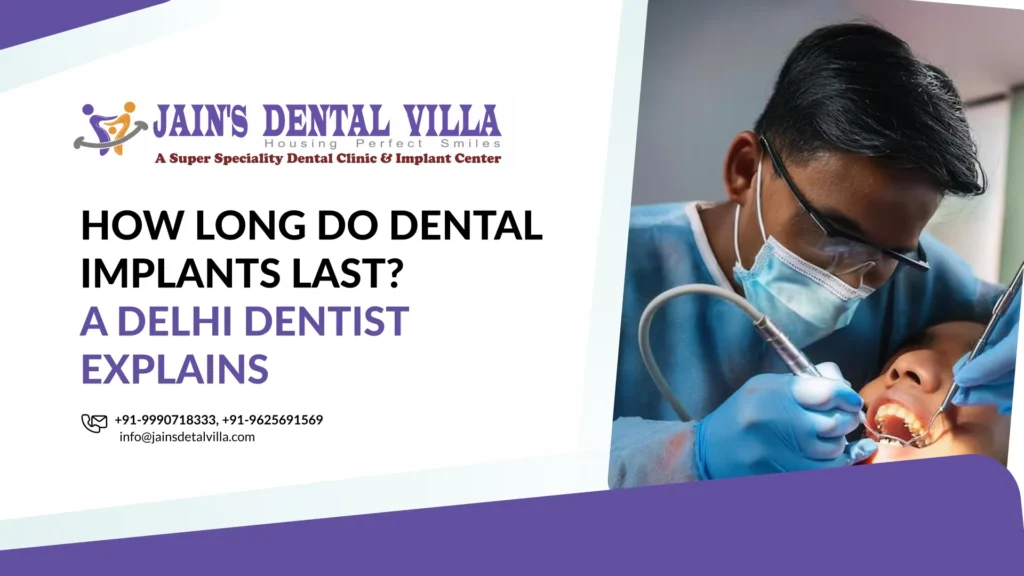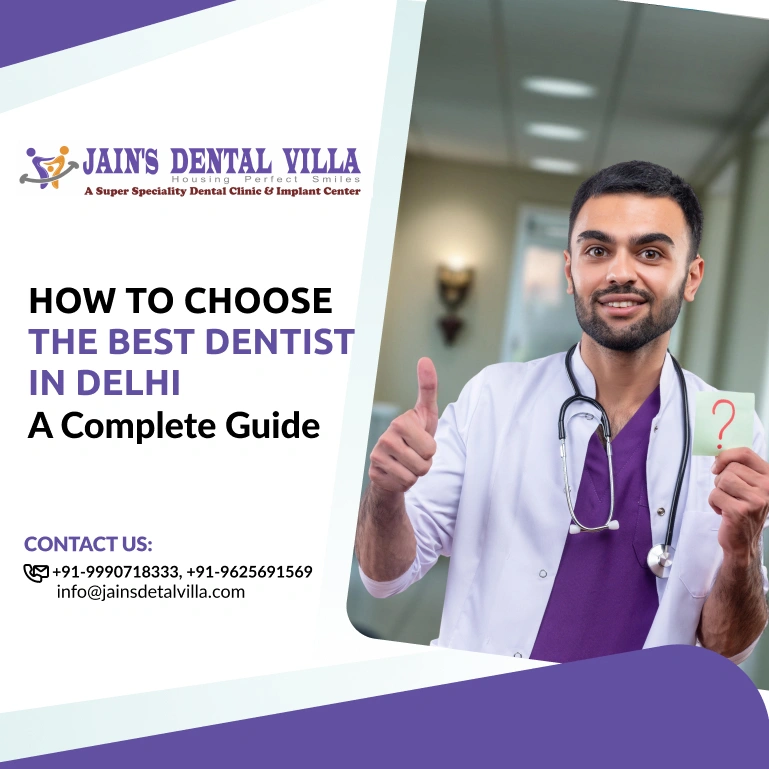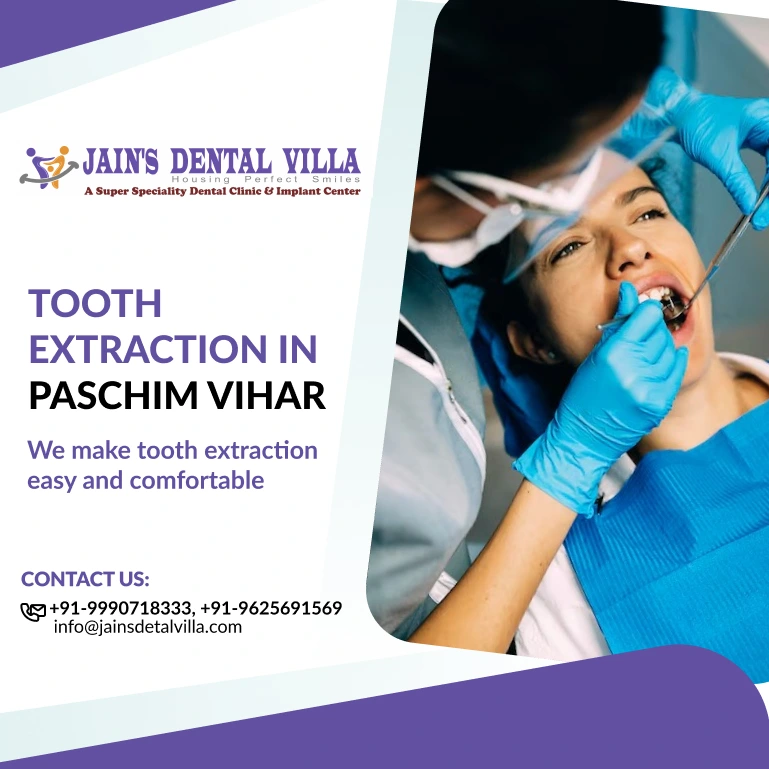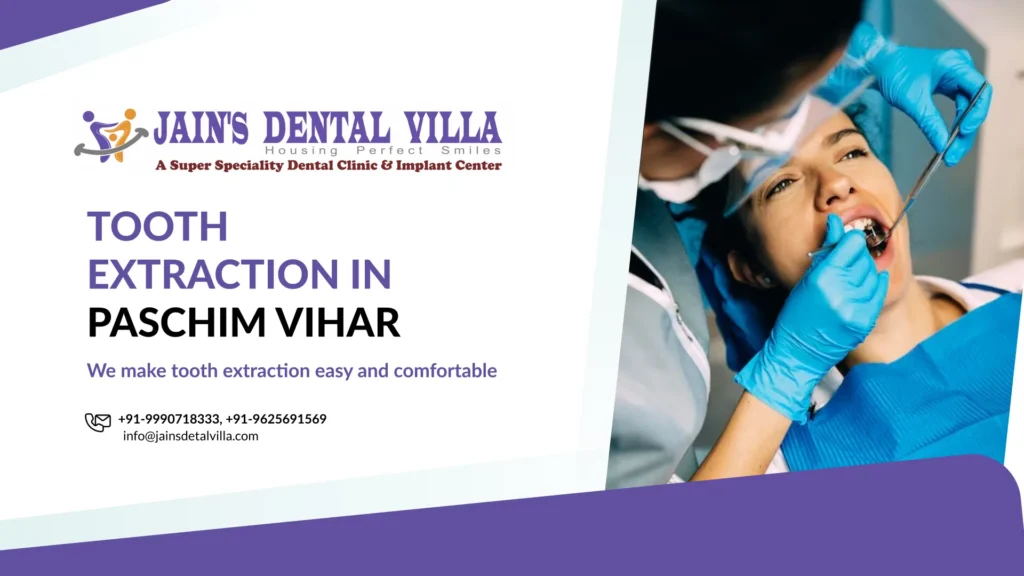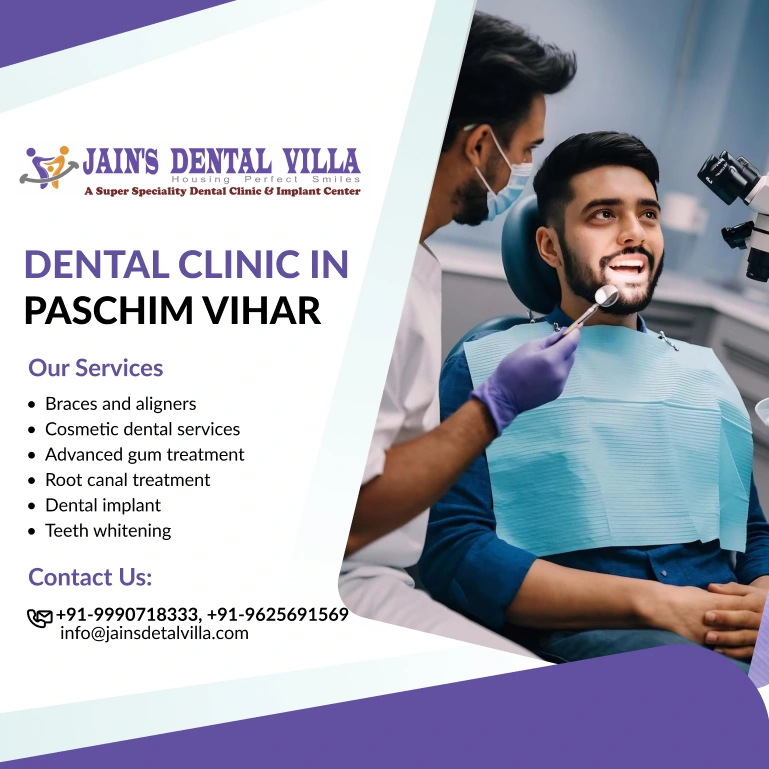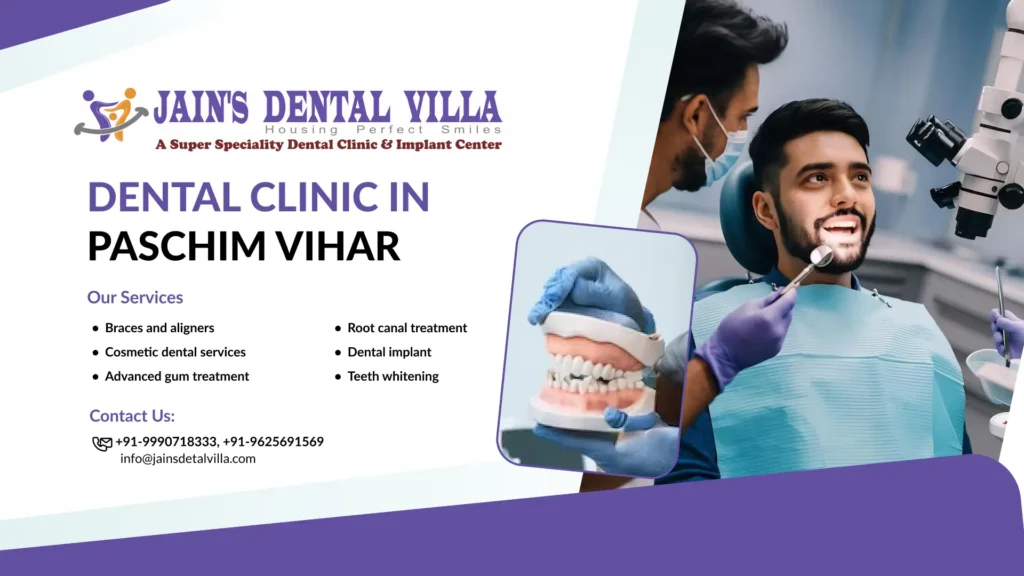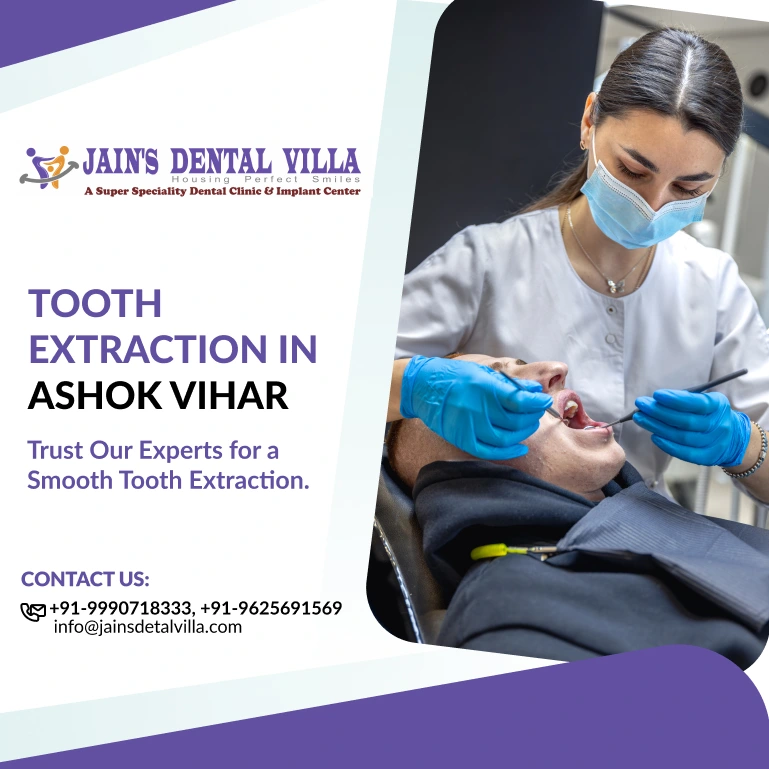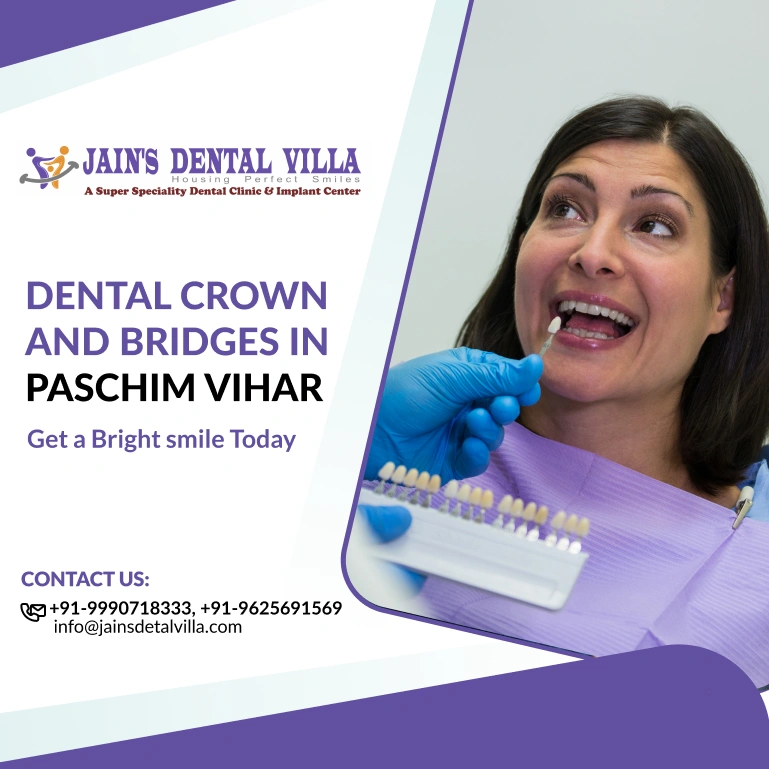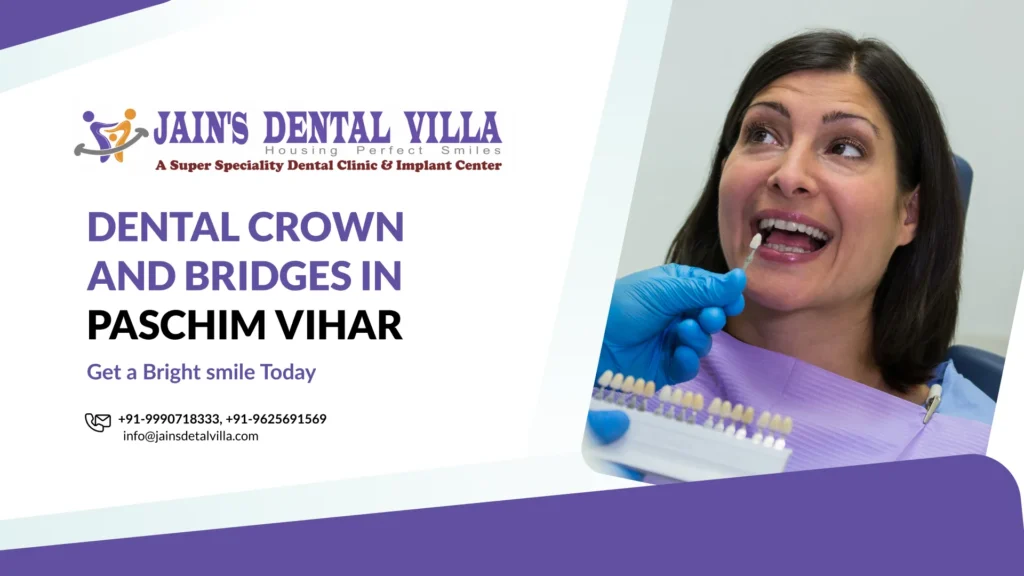Dental treatment for kids is also called pediatric dentistry. It is a specialized branch of dentistry focused on the oral health of children from infancy to late teenage years. Pediatric dentistry is important in ensuring children’s optimal oral health and well-being. Pediatric dentistry goes beyond regular dental care and handles the specific requirements and challenges faced during childhood.

Pediatric dentists are important in laying the base for long-term oral health by concentrating on early identification, customized treatments, and preventive care. They create child-friendly conditions, ensure positive dental experiences, and educate parents on oral hygiene practices. Many families trust the best dentist for kids in Ashok Vihar for preventive checkups and early cavity detection. Jain’s Dental Villa offers excellent treatment in pediatric dentistry.
Pediatric dentistry also involves assessing dental development, managing problems like teething and thumb-sucking, and guiding children through other dental issues. Through their unique know-how and expertise, pediatric dentists protect children’s oral health, support healthy growth and development of teeth and jaws, and ensure complete child well-being. Let us look into the importance of pediatric dentistry and how it contributes to our children’s general health.
Why Choose Jain’s Dental Villa for the Best Dentist for Kids in Ashok Vihar
1. Developing Trust and Comfort
Pediatric dentistry lays great stress on creating a dental home for children. A dental home is where young patients can develop a trusting relationship with their dentist, making sure they feel comfortable and secure during dental checkups. If you want a stress-free dental experience for your child, the best dentist for kids in Ashok Vihar is a great choice.
This familiarity and trust play an important part in decreasing dental anxiety, developing positive dental experiences, and promoting regular dental visits. Jain’s Dental Villa is easily accessible for people living in Ashok Vihar and nearby areas.
2. Early Identification
One of the main benefits of pediatric dentistry is early identification. Pediatric dentists can identify possible problems early and intervene immediately by checking a child’s oral health. Quick identification of dental issues allows for preventive measures, decreasing the threat of more elaborate and expensive treatments in the long run.
From checking tooth eruption to handling orthodontic issues, early identification makes sure that children’s dental health stays on track.
3. Customized Dental Care
Children’s dental requirements are different from those of adults. Their developing smiles need customized care. Pediatric dentists understand and handle these specific requirements. They have the skill to provide age-appropriate treatments, monitor dental development, and help children with important oral hygiene habits.
From prevention of cavities to fluoride treatments, pediatric dentistry provides personalized care to assist in healthy dental growth. When it comes to gentle and expert pediatric care, Jain’s Dental Villa has the best dentist for kids in Ashok Vihar.
4. Treating Oral Health Issues
Children encounter unique oral health issues, like teething, thumb-sucking, and baby bottle tooth decay. Pediatric dentists are accomplished in handling these problems, providing practical advice and useful solutions.
They offer important guidance on oral health practices and preventive measures customized to each child’s unique condition, ensuring optimal oral health throughout childhood. Finding the best dentist for kids in Ashok Vihar ensures that your child receives specialized pediatric dental care.
5. Reducing Stress and Fear
Pediatric dentists are skilled in developing a child-friendly environment that reduces stress and fear. They understand the significance of making dental visits a positive and enjoyable experience. The best dentist for kids in Ashok Vihar focuses on creating a comfortable environment that helps children feel relaxed.
With the help of gentle approaches, age-appropriate explanations, and distraction methods, pediatric dentists assist children in feeling comfortable during dental procedures.
6. Specialized Knowledge
Pediatric dentists undergo extra training and expertise to focus on the dental care of children. From behavioural management methods to understanding the complicated nature of childhood dental development, pediatric dentists are highly accomplished and equipped to offer extra care to their young patients.
7. Prevention is Important
Preventive care is a vital part of pediatric dentistry. Regular dental visits, cleanings, and preventive procedures such as sealants and fluoride applications are important for optimal oral health.
By detecting possible problems in their early stages, pediatric dentists can handle them immediately, avoiding further harm and the requirement for more invasive treatments.
8. Educating Parents and Caregivers
Pediatric dentistry is more than just treating children; it involves educating parents and caregivers. By offering proper guidance on oral hygiene habits, dietary choices, and habits that affect dental health, pediatric dentists enable parents to take an active part in their children’s oral care.
Through education and support, pediatric dentists assist in building a solid base for good oral health practices that will help children throughout their lives. Parents across Delhi prefer Jain’s Dental Villa because it offers compassionate, specialized care from the best dentist for kids in Ashok Vihar.
9. Healthy Growth
Correct dental and jaw development plays an important part in general oral health. Pediatric dentists check and guide this growth, making sure teeth erupt, jaws align correctly, and bite functions correctly. Early identification of orthodontic problems can prevent more elaborate procedures, building a strong foundation for a healthy and confident smile.
The Role of Pediatric Dentistry in General Child Well-Being
Pediatric dentistry is not only about maintaining healthy teeth and gums. It plays a vital part in improving the general well-being of children, involving their physical, emotional, and social health. By concentrating on comprehensive oral care and preventive techniques, pediatric dentistry contributes to children’s overall development and happiness. Let us look into pediatric dentistry’s specific and important roles in promoting general child well-being. Jain’s Dental Villa uses age-appropriate techniques to make dental treatments easier for young patients.
1. Quick Detection: Early identification and handling of dental problems assist in building a solid base for good oral health in the long run. Pediatric dentists can detect possible issues like tooth decay or oral infections, thus preventing complications in the long term.
By handling these problems immediately, pediatric dentistry ensures healthy dental development and reduces the requirement for elaborate procedures in the future.
2. Pain Prevention: Pediatric dentists stress pain prevention and management for children, making sure their dental visits are as convenient and free of anxiety as possible. Methods such as local anesthesia and gentle approaches reduce pain and stress during treatments, developing a positive attitude towards dental care.
Reducing dental pain and distress contributes to a child’s general well-being by improving their ability to eat, sleep, focus, and take part in everyday activities without dental-related issues.
3. Good Oral Health Practices: Pediatric dentistry stresses the importance of positive oral health practices in children, such as brushing twice a day, flossing, and a balanced diet. Pediatric dentists encourage children to take charge of their oral health with the help of education, demonstrations, and personalized guidance.
Educating children about good oral hygiene practices early in life builds a strong base for self-care, assisting children in maintaining healthy teeth and gums.
4. Prevention of Health Problems: By managing oral infections, inflammation, and dental diseases, pediatric dentists decrease the threat of complications that might impact other parts of the body.
Developing proper oral health during childhood can contribute to general well-being, decreasing the odds of developing systemic health issues such as diabetes, cardiovascular disease, and respiratory issues.
5. Psychological and Emotional Health: Pediatric dentistry lays stress on building a positive and child-friendly dental setting. Pediatric dentists utilize behaviour management methods to reduce dental stress, fear, and negative ideas.
By developing positive dental experiences, pediatric dentistry contributes to children’s psychological and emotional health, assisting them in forming a positive attitude towards dental care and decreasing dental-related stress in the long term.
6. Collaboration with Other Healthcare Professionals: Pediatric dentists collaborate with other healthcare professionals, such as pediatricians, speech therapists, and orthodontists, to ensure comprehensive care for children.
This multidisciplinary approach allows for a comprehensive understanding of a child’s general health and ensures dental care is well-integrated with their wider healthcare requirements.
Pediatric dentistry is important because it offers early identification, preventive care, customized treatments, behavioural management, and education and supports general child well-being. Pediatric dentistry lays the foundation for a lifetime of healthy smiles by giving importance to children’s oral health from an early age. It lays a solid base for optimal oral health through the rest of their lives.
Pediatric Dentistry Cost
At Jain’s Dental Villa in Ashok Vihar, pediatric dental treatment typically ranges from ₹500–₹2,000 for scaling, ₹1,000+ for fillings, and approximately ₹3,000–₹6,000 for child root canal therapy.
Conclusion:
Pediatric dentistry is important in developing healthy smiles from an early age. By establishing a dental home, offering early identification, customized care, and building positive dental experiences, pediatric dentists focus on children’s optimal oral health.
By understanding the importance of pediatric dentistry, we invest in our children’s future, making sure they enjoy the advantages of excellent oral health throughout their lives.
Frequently Asked Questions
Pediatric dentists treat dental issues among children from infancy to late teenage years.
Take your child to the dentist within 6 months after the eruption of the first tooth.
It is recommended to visit the dentist once every 6 months unless specified otherwise.
Yes. Baby teeth guide permanent teeth, help children chew properly, and support speech development.
